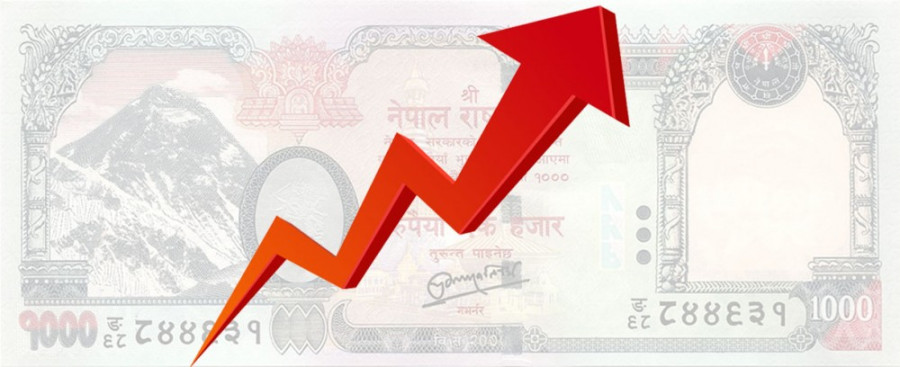Money
Private sector calls for measures to prevent banks from colluding to fix interest rates
Industrialists present wish list for Monetary Policy 2019-20
Rajesh Khanal
Private sector experts on Friday urged Nepal Rastra Bank to introduce measures and a stern monitoring mechanism through the Monetary Policy 2019-20 to prevent banks from colluding to fix interest rates.
Banks have been accused of making informal agreements to hike interest rates and engaging in an interest rate war by offering high interest to attract depositors away from competitors. Last December, the Finance Ministry had even formed a committee to end the interest rate war started by banks.
Speaking at an interaction organised by the Management Association of Nepal, former Nepal Rastra Bank governor Dipendra Bahadur Chhetri stressed the need to allow the market mechanism to set bank interest rates.
“The central bank should step in to completely abolish the trend of making gentleman’s agreements in the banking sector,” said Chhetri Nepal Rastra Bank has implemented measures such as interest rate corridor and spread rate to check excessive hikes in interest rates. However, banks have been violating the central bank’s rule and charging their clients high interest rates.
The central bank has asked banks to maintain the maximum spread rate at 4.75 percent from mid-April, but very few banks have been doing that.
Banks have long been reluctant to reduce the lending interest rate despite a fall in the base rate. Chhetri said the central bank should not allow banks to impose an excessive premium rate on top of the base rate to stabilise interest rates.
Banks have been unwilling to slash the interest rate on loans citing a shortage of loanable funds with credit flow outstripping deposit collection.
The latest report of the Nepal Bankers’ Association shows that banks have collected deposits of Rs2.75 trillion while they have provided loans of Rs2.46 trillion.
Despite lending more than they are receiving in deposits, banks have been constantly complaining about the credit to core capital-cum-deposit (CCD) ratio which is fixed at 80 percent as per central bank regulations.
Gyanendra Prasad Dhungana, president of the association, said the government should revise the method of calculating the CCD ratio to ease the shortage of loanable funds.
“Banks will not make gentleman’s agreements to fix the interest rate if the central bank formulates proper measures to address the shortage of loanable funds.”
Giving an example that Nepal Rastra Bank has been considering the credit issued to the agriculture sector in the CCD ratio, Dhungana said relaxing the rule would help inject an additional Rs200 billion into banking channels. Current central bank regulations require banks to invest 10 percent of their loans in the agricultural sector.
The private sector slammed the central bank for failing to implement policies to benefit the country’s manufacturing sector. “High interest rates have raised the cost of production and affected the competitiveness of domestic products,” said Satish Kumar More, president of the Confederation of Nepalese Industries.
More urged the central bank to operationalise the provision of hedging solutions to encourage banks to take foreign currency loans from foreign institutions. He asked the central bank to allow banks to invest such capital in manufacturing too besides hydropower and tourism.
Participants in the programme expressed concern over the possibility of price hikes if the central bank expands the excess money supply in compliance with the government’s target of achieving 8.5 percent growth in the next fiscal year.
They also asked the central bank to include measures in the Monetary Policy to reduce the service charge levied by banks, check inflation and facilitate the use of digital technology in the banking sector.




 9.83°C Kathmandu
9.83°C Kathmandu















